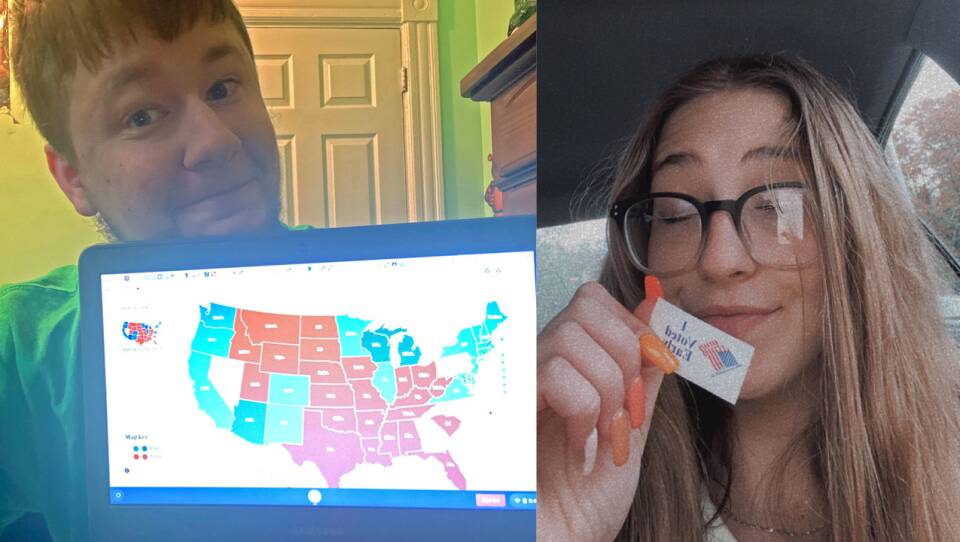The 2020 presidential election is historic in many ways, including for the record number of young people who turned out to vote. Among those enthusiastic young voters were Shayla Rochette and Austin Eaton, both seniors at Marie Philip School at The Learning Center for the Deaf in Framingham, Mass. Both Rochette and Eaton, who are Deaf, were excited to exercise their civic duty and vote for the first time ever in a presidential election.
After learning about the election and the political process in her government class this year, Rochette couldn’t wait to get her “I Voted” sticker. She voted early last week in her hometown of Worcester with her mother, who is also Deaf. Rochette said that because everyone was wearing a mask and she couldn’t see their lips, it was sometimes difficult to communicate, but the poll workers were helpful, writing down their questions and ensuring that Rochette could cast her ballot.
“It felt like I became an adult in some way,” Rochette said through an American Sign Language (ASL) interpreter.
Eaton, who lives in Manchester, N.H, headed to the polls on Election Day with his father. Because it was his first time voting, he also registered to vote at his polling center. He says that although he was nervous about all of the paperwork, everything went smoothly. His father, who is hearing, was able to communicate with the poll workers. “There were so many names in each column! But I felt like it was fairly easy,” Eaton said, through an ASL interpreter, about filling out his ballot.
Since he voted, Austin feels more invested than ever in the political process. His government teacher, Rich Knopf, says he has been glued to his computer screen all week tracking results and the tallies for the electoral college.
Because of the coronavirus pandemic, Rochette and Eaton’s classes have been virtual since September. Rochette says that has been a challenge for her and other students. “Being Deaf and being full remote has been hard because we use our eyes to hear and socialize,” she said. “And being remote, we feel cut off from the world, from the teachers to have a connection with, and to the culture and the environment, and having the full spectrum of bodies and faces to communicate with each other and learn.”
Both Rochette and Eaton said being a part of the political process has made them feel empowered, and they have a message for other young people: “Everyone counts,” Rochette said. "If you think something is best for America, you need to get involved. And if it has to do with your moral values, you should vote.”




